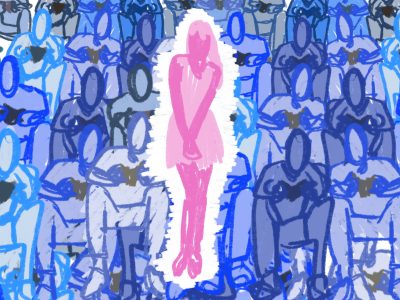On July 20 of this year, the state of California’s Department of Fair Employment and Housing filed a lawsuit against blockbuster game development company Activision-Blizzard for a sexist workplace environment.
The accusations leveled by the lawsuit and subsequent reports are devastating to read. Women were paid less for the same work and denied leadership positions and regularly sexually harassed at work and work-related social functions, with HR departments unwilling to resolve any of these issues.

The misogyny and cruelty suffered by Blizzard employees is profoundly depressing and casts a dark shadow on the studio’s many beloved properties.
It is still heartening, however, to see the outpour of support and righteous fury from Blizzard fans and workers alike. An employee walkout protesting the situation garnered widespread participation on July 28, as well as messages of solidarity from across the gaming and tech spheres. Even livestreamers who primarily play Blizzard games like “Overwatch” for a living pivoted to other things on that day.
The boiling-over of Blizzard’s long history of internal toxicity continues to make industry headlines a month and a half later and will probably continue to in the coming months. Just two weeks ago, Blizzard announced they would rename the “Overwatch” character “McCree,” after his namesake, a former employee, was implicated in the scandal.
At the same time, I feel like we would be remiss to let backlash start and end with Blizzard alone as if they were the only offenders. When I see people in the gaming world talk about the situation online, it seems that their condemnation is only reserved for Blizzard as they give other developers and industry writ large a pass.
In my opinion, this is a strategic and moral misstep.
California’s lawsuit against Blizzard summarizes the company’s disastrous social climate as a “frat-boy” culture. When reading reports of employees’ bacchanalian parties and brazen sexual advances on female employees, this certainly rings true.
But we should not assume that this is an isolated issue in Blizzard alone. “Blizzard management set the tone by hiring mostly men, stroking their egos and often overlooking or being unaware of misbehavior,” explains journalist Jason Schreier for Bloomberg, based on employee testimonies. These factors—a male-skewed gender balance, lack of support for victims, and notoriety afforded to triple-A game designers—should be somewhat common. Do they cause the same issues at other studios?
If Riot Games, one of Blizzard’s major competitors in the arena of multiplayer titles, is any indication, the answer is an unfortunate yes. The environment for Riot employees sounds terrifyingly similar — a “‘bro culture’” epidemic akin to “working at a giant fraternity,” according to one former employee quoted in Kotaku in 2018.
Riot has in fact been under scrutiny for these issues for years, ever since the Kotaku piece went public. A class-action lawsuit against the company soon followed, settled in 2019 for $10 million paid out to former and current female Riot employees.
The state department has also since targeted Riot, opening litigation against them in February for the aforementioned gender discrimination. This only intensified in June as the California DFEH found language in Riot’s internal documents falsely informing employees that they could not speak with the government about the issues they experienced.
It would be nice if there was a simple solution to the internal rot at Riot, Blizzard and presumably many other game development companies, but that is not the case. Not only is it imperative that victims of harassment and unfair treatment be supported, but the culture within gaming companies needs to be entirely overhauled.
Internal hierarchy, dramatic gender disparity, intense partying and cultural enablers — in Blizzard’s case the “rockstar” treatment of developers, in Riot’s case the insistence on hiring “core gamers”—need to be fixed. If a game studio doesn’t already have an issue on the scale of Blizzard’s or Riot’s, they should make sure that they aren’t sowing the seeds for one. Moreover, we must challenge the dynamics of power and hierarchy outside of the games industry as much as we can, or else the workplace will continue to reflect the unfairness of the capitalist world.
The burden of fixing these issues, in other words, rests on all of us.






















































































































